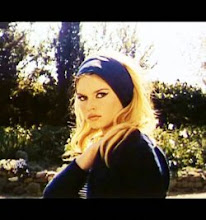
date watched: June 9, 2009
location: Apgujung CGV, Seoul, Korea
I mostly went to see this film (even though I had to strain my neck, sitting in the second row) because of my love of Kore-eda's most well-known work, Nobody Knows (2004). There were quite a lot of fans last night, as I could see from their Kore-eda DVDs in hand.
If Nobody Knows focused on childrens' perspectives, this film was more concerned with the elderly. But I wouldn't necessarily say that they are primary and sole voices of the film, since children also serve a great role.
One thing I know for certain is that the central figure is Junbei, though he is no longer alive. As he was the older son, his presence is sorely missed, though in different ways by each of the characters. The grandfather, for one, is left embittered: he considered his oldest son a good doctor, like himself, and he blames other people for his death, though nobody has actually killed him. The grandmother is more passive than her husband, but she too is desperate to hold on to his remaining imprints. She even tries to catch a yellow butterfly inside the house, believing it is her son's spirit. The brother cannot even mourn, for fear that it will overpower his parents' grief. Furthermore, he now has a family to take care of, and is especially concerned with winning the respect of his once-widowed wife's young son.
The piece, like many of Kore-eda's former works, is tender, and unsentimental. No tearjerking situations, no false emotion imposed. The movie itself feels like a walk, but one taken with family members, not the type involving pressured pumping of feet heading to work. It also is a celebration of the older generation, and their humor--they may be past the stage of working for a laugh, but because whatever shame they had in youth is now dissolved, they speak openly of their past. The laughter from the audience is thus not hearty, but consist instead of bubbling chuckles.

When Ryo (played by Hiroshi Abe) and his son accompany the grandfather on his walk to the beach, they walk down the stairs not side by side, but in a queue, from order of youngest to oldest. It's not much, but this scene is touching because of its ability to bring three different people from different walks of life through loss--they all have dealt with death of a loved one. We know that Ryo will have to remember what it was like to lose his brother, and be able to empathize with his son, who has lost his real father.
When Ryo and his wife come back to Yokohama to visit the grandparents' graves, in addition to his brother's, he repeats his mother's words and actions, as if they were his own: pouring water over the hot tombstone, and telling his daughter about butterflies. Just as he walked to the graves with his aged parents, Ryo's children will one day also walk alongside an older Ryo, and one generation passes onto the next...

No comments:
Post a Comment